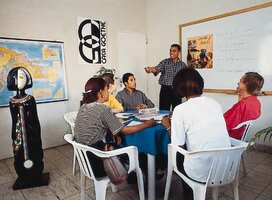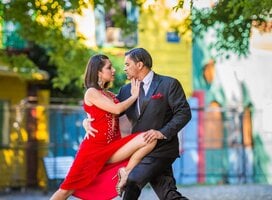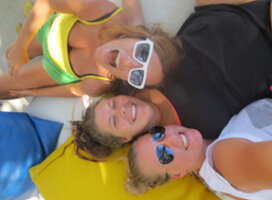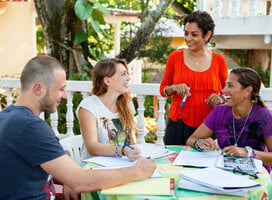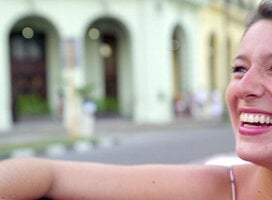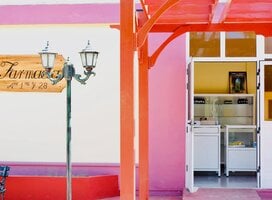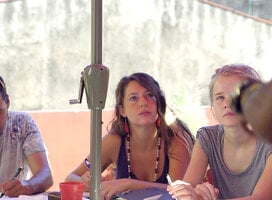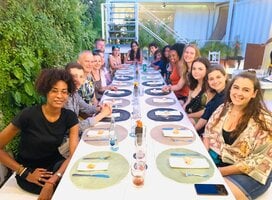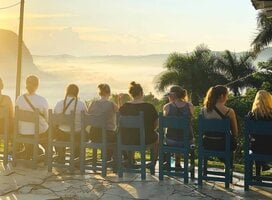Spanish Language Schools in the Dominican Republic
The Caribbean often gets bypassed by Spanish students with their eyes set on Central or South America, but they're missing out on the chance to learn Spanish on this sunny island that moves to the beat of bachata.
The DR is an ideal destination if you're looking to improve your Spanish and immerse yourself in some of the Caribbean's best music, dance, and culture. Many language programs also offer extracurricular activities like surf lessons, dance classes, or excursions to other parts of the island, so don't forget to take advantage of the opportunities outside the classroom!
No matter where you are, you'll have the chance to meet locals and learn the unique rhythm of Dominican Spanish in a beautiful environment.
Dominican Spanish is unique, not only because people in the DR speak so fast, but because it has its own specific vocabulary and even grammatical structure. The Spanish you hear spoken at home or on the street may sound very different from what you learn in class, so you'll be learning no matter where you are.
Small Language Schools
Because the DR is a fairly small country and doesn't have the same kind of language industry catering to foreigners as places like Guatemala and Ecuador, most Spanish courses are offered through smaller independent language schools, rather than big providers or universities. This makes the Dominican Republic a great choice for beginners who want a more familiar learning environment and more personalized attention.
Most institutes have a range of programs designed for different learning styles and objectives, from group classes to one-on-one lessons, so you can choose the option that best fits your language goals.
Santo Domingo
If you want to be in a city, there's really only one option: the capital of Santo Domingo. The city on the southern coast, home to about a million people, is one of the Caribbean's oldest cities. The Zona Colonial historic area dates back more than 500 years, but the current city offers a modern blend of culture, music, and arts.
Cabarete
Things move a little slower on the northern coast, where the beach town of Cabarete houses a few different language schools in between its hotels, restaurants, and surf schools. Cabarete has gained fame as the adventure sports capital of the DR, its wind and waves drawing surfers, sailors, kiteboarders, and all kinds of other outdoor enthusiasts.
Sosúa
Just up the coast from Cabarete is Sosúa, where several Santo Domingo-based institutes have opened satellite programs. Like Cabarete, little Sosúa attracts visitors to its sparkling beaches, while snorkelers and divers are drawn to its calm waters and beautiful reefs.
Costs
Language schools charge by either the week or the class, depending on what kind of course you're enrolled in. Intensive group courses start at around $130 per week, with prices increasing as classes get smaller and more personalized, to about $400 a week for one-on-one sessions.
Prices also decrease over time, so a second or third week will usually cost 10-20 percent less than the first week. Private lessons charged by the hour average about $20-25 per hour, also decreasing in price as the number of hours goes up.
Extracurriculars like diving, surfing, or dance lessons are usually not included in the base price, but can be added on to your course package.
Housing
Some language schools offer a homestay option, while some of the ones in beach towns have all-inclusive study packages that include housing, either in dorms/student housing or private condos. These accommodations can be fairly affordable, starting at around $120 per week, but you can also check local hostels or apartment listings to see how prices compare.
Visas
Visitors coming from English-speaking countries don't need a visa to visit the DR, but you will need to get a tourist card when you arrive. The cards cost $10, are good for 30 days and can be extended twice (for a maximum stay of 90 days).
